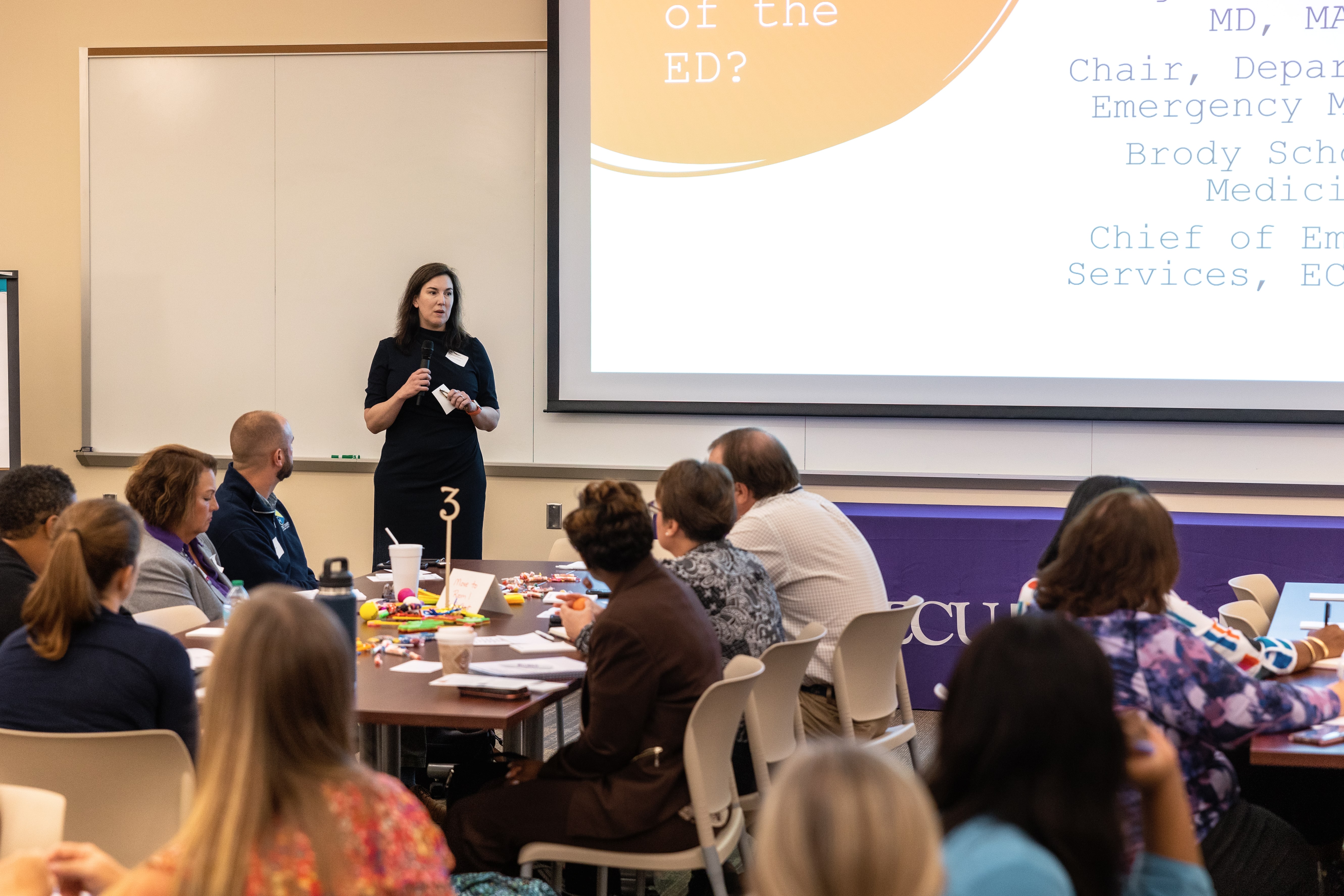Seven key priorities served as the central discussion point as community-based health partners joined ECU Health and Pitt County Department of Social Services (DSS) in October for the second session of a conference series designed to support the emergency department and improve access to non-emergent care across eastern North Carolina.
The seven key priorities, identified during the first conference session in early October, represent the unique viewpoints from stakeholders across the community and all of whom share a common goal: reduce unnecessary utilization of the emergency department in Greenville.
The seven priorities include:
- Placement/disposition – getting patients placed in the appropriate care settings outside the emergency department such as skilled nursing facilities, in-home care, adult care homes, foster homes, etc.

- Navigating the system – defining roles and responsibilities of each agency
- Collaboration – improve collaboration among systems and across agencies
- Crisis system – more clearly defining how the system operates and clarifying any confusion that may exist
- Community options and wraparound support – ensure a robust support system in the health care setting and in the community to ensure people get the help they need
- Access to services – provide clarity on where patients need to go to access care
- Regulatory – reduce barriers and create efficiencies in key operational areas like timely discharge and clinical assessments
“This was a moment for us as a health care community to not only clearly define the challenges facing the patients we serve, but to also explore how we can implement solutions that improve the emergency care realities here in eastern North Carolina,” said Jacob Parrish, vice president of capacity and throughput at ECU Health, who served as one of the conference organizers. “The challenges facing emergency departments both locally and nationally cannot be solved solely by the hospitals themselves. These conversations help us take our words and put them into collaborative action.”
Health care and community partners in attendance at the conference included ECU Health, DSS Directors from across eastern North Carolina, Juvenile Justice, Trillium Health Services, Public School leaders, NC DHHS, payors, faith leaders, and other eastern North Carolina hospitals and key stakeholders. The conversation focused on both adult and pediatric/adolescent patient populations who present at the emergency department but could be better served in a different setting.
The importance of education and outreach served as a common theme throughout the discussion. Organizations talked not only about the importance of providing critical information directly to patients, but also emphasized the importance of educating themselves on the role that other organizations and agencies play in the care continuum.

ECU Health highlighted the growing demand for emergency department services and the urgent need to streamline care in the community for non-emergent cases. The discussions underscored how patients with non-critical issues are often funneled to emergency departments due to limited access to routine and primary care resources and crisis services, creating unnecessary strain on EDs. ECU Health Medical Center, for example, remaining full nearly half the year due to high patient volumes, which often exceed its 974-bed capacity. This backlog directly impacts how long some patients may wait in the ED.
“Our commitment to improving emergency care access and efficiency for our patients is unwavering,” said Dr. Leigh Patterson, chief of services for emergency medicine at ECU Health Medical Center. “The collaboration we’re seeing across health care and alongside our community partners demonstrates a shared dedication to creating lasting solutions that serve the unique needs of eastern North Carolina.
By addressing the root causes that lead to emergency department overutilization, we’re working to not only improve the experience for our patients but also strengthening health care in our region.”
ECU Health and Pitt County DSS will host a third session of the conference to further discuss action items and strategies to support more collaboration in the community.